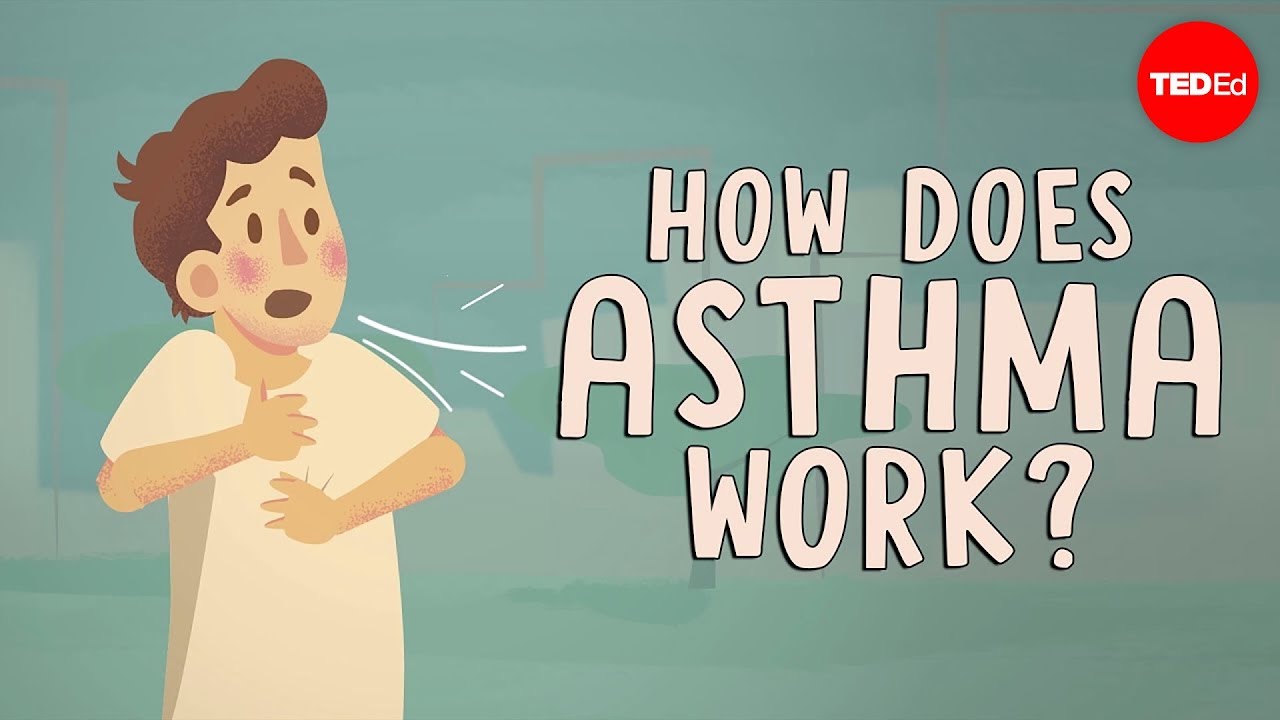Asthma - Management Tips And Strategies To Help You Live Better With The Condition
Asthma is a lung condition also known as bronchial asthma. Inflammation and mucus in the airway lining are the root causes of asthma. It may generate a wheezing or whistling sound when breathing during an episode, among other symptoms.
Author:Suleman ShahReviewer:Han JuJan 30, 202347.7K Shares937K Views

Asthmais a lung condition also known as bronchial asthma. Inflammationand mucus in the airway lining are the root causes of asthma. It may generate a wheezing or whistling sound when breathing during an episode, among other symptoms.
It's not going away and requires constant medical attention since it's persistent. Presently, more than 25 million individuals in the United States suffer with asthma. There are more than 5 million kids included in this figure. Without proper treatment, asthma may be fatal.
What Is Asthma?
The airways in the lungs are affected by the chronic disease asthma. The airways are a network of passageways that allow air to enter and exit the lungs. In the case of asthma, airflow might become restricted due to inflammation. As a result, exhaled air will have a more difficult time leaving your lungs.
According to data from the Centers for Disease Control and Preventionexternal link, around 1 in 13 Americans suffer with asthma. It may manifest in children but eventually affects individuals of all ages.
Things like pollen, physical activity, viral illnesses, and chilly air may all trigger or exacerbate asthma attacks. Asthma triggers are what cause asthma attacks. An asthma attack occurs when symptoms worsen significantly.
Although asthma cannot be cured, it may be controlled via medication and education. In certain cases, medication and/or a plan to avoid triggers may be part of the strategy.

How does asthma work? - Christopher E. Gaw
Assessment Of Asthma Risk
The airways of someone with asthma are perpetually irritated. Consequently, they are more vulnerable to the asthma attack triggers. Each individual may respond in unique ways to these stimuli. Asthma triggers might vary from person to person.
The risk of having asthma may be increased by both internal and environmental factors. Genes and family historyare examples of internal dangers. Variables beyond of one's control include one's environment, one's occupation, and one's cigarette smoking habits.
Talk to your doctor about being tested for asthma if you have any concerns. Asthma cannot be diagnosed with a single test; rather, your doctor will consider your symptoms and healthbackground.
Asthma Prevention And Avoidance
There are several triggers for asthma symptoms. Some stimuli are more prevalent than others. To aid in the prevention of asthma episodes, it is essential to be aware of your asthma triggers and how to avoid them.
Dust mites, pet dander, pollen, mold spores, cigarette smoke, air pollution, and exercise-induced bronchoconstriction are common causes (EIB). Other less frequent factors include cold air, intense emotions (stress or anxiety), medications (such as beta-blockers or aspirin), and foods (such as shellfish or peanuts). It is essential to avoid the following asthma triggers:
- Identify your personal asthma triggers by maintaining an asthma diary and noting what you were doing when you had an asthma attack.
- Minimize your exposure to your asthma triggers.
- Take efforts to regulate your surroundings, such as using a dehumidifier if you're sensitive to dust mites or remaining inside on high-pollen days
- If you have EIB, warm up before exercising and cool down afterwards
- If you suspect you are experiencing an asthma attack, use the medicine prescribed by your doctor.
There are few home treatments that might aid in asthma prevention. These are listed below:
- Exercise regularly
- Reduce excessive weight
- Avoid asthma irritants.
- Avoid pollutants and dust particles
- Do frequent breathing exercises
- Avoid coughs and colds
- Quit smoking
Benefits Of Homeopathic Medicines
Asthma is treated constitutionally in homoeopathy. When doing so, it is necessary to take into consideration the patient's unique mental and physiological makeup in order to choose the most effective treatment. After a diagnosis has been made, the appropriate strength of the selected medicine is administered.
Chronic conditions like asthma may be difficult to manage. Homoeopathy, on the other hand, is a non-invasive therapythat shows promise for long-term improvement. There are numerous reasons why homeopathic treatments are worth a try, but here are just a few:
- It is quite safe to utilize homeopathic remedies. They're mild and cause minimal problems.
- Many chronic diseases, including asthma, respond well to homeopathic treatment.
- Acute diseases, like the common cold or the flu, are also treatable with homeopathic remedies.
- The majority of health food shops will have low-cost homeopathic medications.
Asthma Management Tips
A few things you can do to help keep your asthma under control:
- Try joining a group for training or assistance. If you need assistance managing your asthma, talk to your doctor about asthma training and support groups.
- Learn about your condition, your medications, how to spot the early signs of an asthma attack, and when to get medical help.
- Closely observe the air pressure. Your doctor may recommend peak flow meter training as part of your asthma action plan. Make sure to keep a note of them. Asthma control may be monitored by comparing readings taken at different times. Asthma attacks may be predicted by a low score even before symptoms manifest.
- Keep track of your asthma attacks and bring the log to your doctor's appointment. In this data sheet, you'll find a symptom tracker as well as advice on how to determine your peak flow.
People Also Ask
What Is Asthma Condition?
Long-term inflammation of the airways in the lungs characterizes asthma. Symptoms shift and come back, airflow blockage may be reversed, and bronchospasms are easy to set off. You may have wheezing, coughing, chest tightness, and difficulty breathing.
What Happens To Your Airways When You Have Asthma?
The airways are a network of passageways that allow air to enter and exit the lungs. In the case of asthma, airflow might become restricted due to inflammation. As a result, exhaled air will have a more difficult time leaving your lungs. One in thirteen American adults has asthma, making it a very common chronic illness.
When Does Asthma Go Away?
In children, it may go away or become better throughout adolescence, only to reappear in adulthood. In most cases, therapy will be able to alleviate the symptoms. Although those with severe asthma may continue to struggle, the vast majority of individuals will be able to lead normal, active lives.
Do You Have Symptoms Of Asthma All The Time?
Asthma may cause either occasional bouts or constant discomfort, depending on the person. Examples of symptoms associated with asthma include: Flu or a cold exacerbate symptoms of asthma, including coughing and wheezing.
Final Thought
Although there is no known cure for asthma, the disease may be managed with therapy so that you can lead a normal, active life. The most common form of therapy involves the use of an inhaler to take medication by breathing it in. If your asthma is severe, you may need to take medication in addition to using other therapies.

Suleman Shah
Author
Suleman Shah is a researcher and freelance writer. As a researcher, he has worked with MNS University of Agriculture, Multan (Pakistan) and Texas A & M University (USA). He regularly writes science articles and blogs for science news website immersse.com and open access publishers OA Publishing London and Scientific Times. He loves to keep himself updated on scientific developments and convert these developments into everyday language to update the readers about the developments in the scientific era. His primary research focus is Plant sciences, and he contributed to this field by publishing his research in scientific journals and presenting his work at many Conferences.
Shah graduated from the University of Agriculture Faisalabad (Pakistan) and started his professional carrier with Jaffer Agro Services and later with the Agriculture Department of the Government of Pakistan. His research interest compelled and attracted him to proceed with his carrier in Plant sciences research. So, he started his Ph.D. in Soil Science at MNS University of Agriculture Multan (Pakistan). Later, he started working as a visiting scholar with Texas A&M University (USA).
Shah’s experience with big Open Excess publishers like Springers, Frontiers, MDPI, etc., testified to his belief in Open Access as a barrier-removing mechanism between researchers and the readers of their research. Shah believes that Open Access is revolutionizing the publication process and benefitting research in all fields.

Han Ju
Reviewer
Hello! I'm Han Ju, the heart behind World Wide Journals. My life is a unique tapestry woven from the threads of news, spirituality, and science, enriched by melodies from my guitar. Raised amidst tales of the ancient and the arcane, I developed a keen eye for the stories that truly matter. Through my work, I seek to bridge the seen with the unseen, marrying the rigor of science with the depth of spirituality.
Each article at World Wide Journals is a piece of this ongoing quest, blending analysis with personal reflection. Whether exploring quantum frontiers or strumming chords under the stars, my aim is to inspire and provoke thought, inviting you into a world where every discovery is a note in the grand symphony of existence.
Welcome aboard this journey of insight and exploration, where curiosity leads and music guides.
Latest Articles
Popular Articles